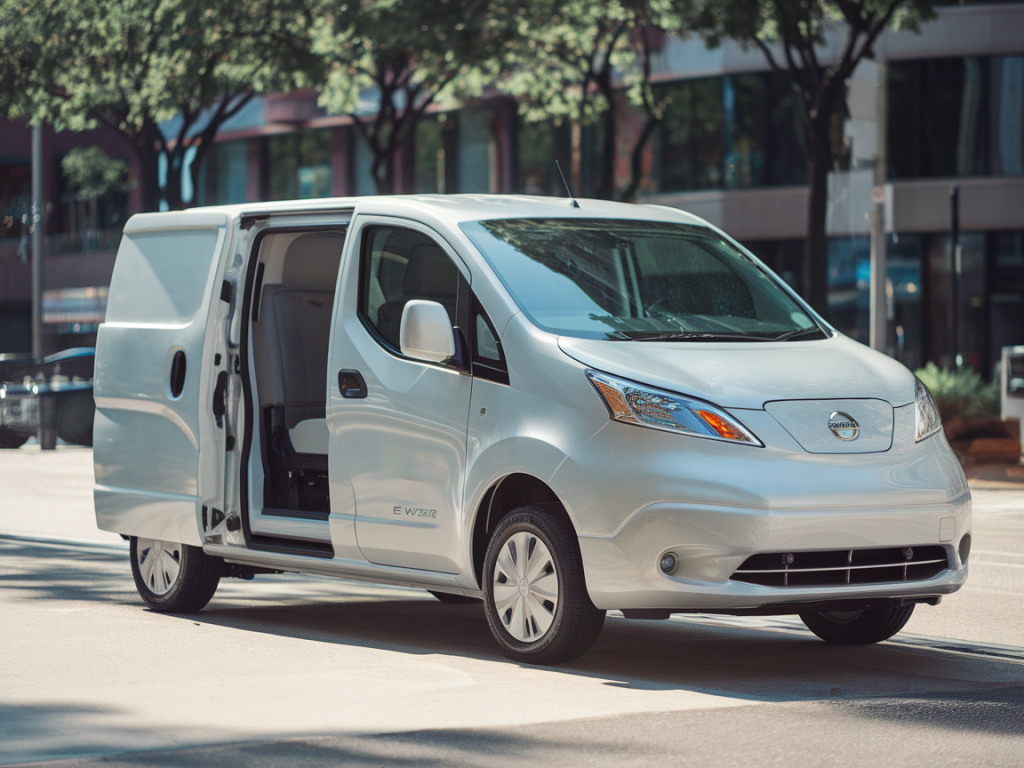
Over the past few years, I’ve spent a lot of time diving into the evolution of last-mile delivery—those final crucial steps in any logistics journey that bring goods directly to our doorsteps. It’s a space teeming with innovation, urgency, and sustainability challenges. When I first heard about Nissan’s ambitious push into the electric van segment, particularly their plans to electrify the last-mile delivery market, I felt something shift. Could this be the move that redefines urban logistics as we know it?
Why the Last Mile Matters More Than Ever
As someone deeply immersed in urban planning and mobility, I often stress how the 'last mile' isn't just a logistics term—it's a make-or-break point in transportation ecosystems. The rise in e-commerce, intensified by the COVID-19 pandemic, has dramatically increased the volume of small, frequent deliveries. These are typically fulfilled by fleets of vans crisscrossing communities all day long, often contributing disproportionately to urban congestion and emissions.
According to the World Economic Forum, last-mile delivery emissions could increase by more than 30% in the top 100 cities globally by 2030 if no intervention is made. That’s terrifying when you think about the sustainability targets many cities are trying to hit. And this is where Nissan’s electric van strategy caught my attention—for more reasons than one.
Nissan’s e-NV200: A Quiet Revolution, Now Evolving
You may already be familiar with the Nissan e-NV200, a compact electric van that launched in 2014. While not a complete game changer at the time, it quietly carved out a niche among fleet operators looking for zero-emission alternatives. But Nissan is now going a step further.
In 2023, Nissan announced the successor to the e-NV200: a brand-new all-electric van platform designed from the ground up as part of their EV36Zero strategy. This new model isn’t just a rehash—it’s the result of a £1billion investment in Nissan’s EV production hub in Sunderland, UK, aimed at creating a fully integrated electric ecosystem.
A Platform Designed with Purpose
What excites me most about Nissan’s latest move is their intent. This isn’t just about churning out electric versions of existing vehicles. It’s about creating vans that are tailored for the unique demands of last-mile delivery:
- Maximized cargo space while maintaining a compact urban profile.
- Improved range and battery efficiency for all-day operation in dense city environments.
- Integrated smart features like route optimization and real-time diagnostics for fleet managers.
- Ultra-fast charging compatibility to keep downtime at a minimum.
All this, combined with Nissan’s partnership approach—working with logistics companies, local governments, and charging infrastructure providers—creates a true ecosystem rather than just another product on the market.
Sustainability Meets Affordability
Another layer to this story that I find incredibly important is affordability. Often, when we talk about electric vehicles—especially specialist ones like delivery vans—we assume a high price point that puts them out of reach for smaller businesses. But Nissan’s localized production at the Sunderland plant and their modular platform design are expected to lower both capital and operational costs.
They’re also leveraging shared architecture with Renault and Mitsubishi through their ongoing Alliance partnership, which improves scalability and helps reduce overhead. The logic is simple but impactful: the more you streamline and scale EV production, the more accessible it becomes for SMEs and family-run courier services who truly power the last mile on the ground.
Urban Impact: Clean, Quiet, Better
One of the most rewarding parts of my work has been exploring how changes in vehicle technology directly affect urban living. I’ve listened to countless city residents complain about the noise of diesel delivery vans, not to mention the thick air pollution they leave behind. Electric delivery vans like Nissan’s future EVs tackle both issues head-on.
Picture a city where delivery doesn’t come with a soundtrack of revving engines, and where your air is measurably cleaner with every electrified vehicle added to a fleet. Nissan’s electric vans offer a vision of a quieter, more livable urban environment—something I believe we should all be rallying around.
Additionally, their low operating cost and access to zero-emission incentive zones ensure long-term viability for operators who want to stay competitive and compliant without punishing overheads.
Comparing the Competition
| Brand | Electric Van Model | Range (WLTP) | Payload | Standout Feature |
|---|---|---|---|---|
| Nissan | New EV Van (TBD) | ~300 km (projected) | 800–1,000 kg | Built from EV-dedicated platform, fast charging |
| Renault | Kangoo E-Tech | 300 km | 800 kg | Compact design, extensive tech suite |
| Ford | E-Transit | 350 km | 1,600 kg | Larger fleet capabilities, high payload |
| Mercedes-Benz | eVito | 262 km | 850 kg | High-end connectivity, luxury feel |
As you can see, Nissan’s strategy fits comfortably among leading competitors—but what differentiates them is their long-term ecosystem thinking. Rather than simply building a solid van, they’re laying the groundwork for a connected, clean delivery future.
The Broader Shift Toward Smarter Logistics
As cities implement low-emission zones and zero-tailpipe emission mandates, fleet operators are under increasing pressure to adapt. Nissan isn’t just responding to this trend—they’re anticipating it. Combining their new platform with AI-driven logistics, telematics, and partnerships with green infrastructure providers means they’re not only giving us the tools, but also the framework to use them smarter.
These kinds of comprehensive strategies are exactly what we need to see more of. And personally, it’s heartening to witness automakers begin to understand mobility not as a collection of vehicles, but as a responsive, sustainable, and equitable system.

